
Blyde River Canyon Nature Reserve: South Africa's Majestic Wonder
Blyde River Canyon Nature Reserve is one of South Africa's most awe-inspiring natural wonders. Nestled in the northern part of the Drakensberg escarpment, this reserve spans over 29,000 hectares and boasts the third largest canyon in the world. The canyon, with its lush subtropical foliage, is a haven for nature lovers and adventure seekers alike. A visit to the canyon offers breathtaking views of towering rock formations, cascading waterfalls, and serene rivers. The famous viewpoints such as God's Window, Bourke's Luck Potholes, and the Three Rondavels provide panoramic vistas that are nothing short of spectacular. These natural landmarks are perfect for photography enthusiasts who want to capture the sheer beauty of the landscape. Wildlife enthusiasts will be thrilled by the diverse range of fauna and flora. The reserve is home to various species of antelope, primates, and over 200 species of birds. Hiking trails of different difficulty levels allow visitors to explore the area's rich biodiversity up close. The Kadishi Tufa Waterfall, one of the few active tufa waterfalls in the world, is another must-see attraction within the reserve. For those looking for a bit more adventure, there are numerous activities such as white-water rafting, boat tours on the Blyde Dam, and hot air ballooning. Each activity offers a unique perspective of the canyon and adds to the overall experience of visiting this natural wonder.
Local tips in Blyde River Canyon Nature Reserve
- Wear comfortable hiking shoes for exploring the trails.
- Bring a camera with a good zoom lens for capturing the panoramic views.
- Pack a picnic to enjoy at one of the scenic spots.
- Visit early in the morning for the best light and fewer crowds.
- Check the weather forecast and dress in layers, as conditions can change quickly.
Blyde River Canyon Nature Reserve: South Africa's Majestic Wonder
Blyde River Canyon Nature Reserve is one of South Africa's most awe-inspiring natural wonders. Nestled in the northern part of the Drakensberg escarpment, this reserve spans over 29,000 hectares and boasts the third largest canyon in the world. The canyon, with its lush subtropical foliage, is a haven for nature lovers and adventure seekers alike. A visit to the canyon offers breathtaking views of towering rock formations, cascading waterfalls, and serene rivers. The famous viewpoints such as God's Window, Bourke's Luck Potholes, and the Three Rondavels provide panoramic vistas that are nothing short of spectacular. These natural landmarks are perfect for photography enthusiasts who want to capture the sheer beauty of the landscape. Wildlife enthusiasts will be thrilled by the diverse range of fauna and flora. The reserve is home to various species of antelope, primates, and over 200 species of birds. Hiking trails of different difficulty levels allow visitors to explore the area's rich biodiversity up close. The Kadishi Tufa Waterfall, one of the few active tufa waterfalls in the world, is another must-see attraction within the reserve. For those looking for a bit more adventure, there are numerous activities such as white-water rafting, boat tours on the Blyde Dam, and hot air ballooning. Each activity offers a unique perspective of the canyon and adds to the overall experience of visiting this natural wonder.
When is the best time to go to Blyde River Canyon Nature Reserve?
Iconic landmarks you can’t miss
God’s Window
Discover breathtaking views and natural beauty at God's Window, a must-see scenic spot in Ehlanzeni, Mpumalanga, South Africa.
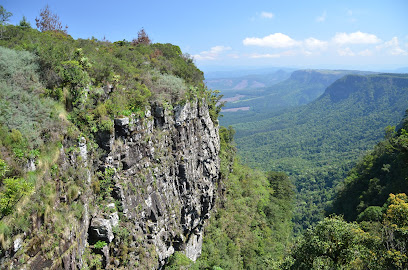
Bourke's Luck Potholes
Experience the breathtaking beauty of Bourke's Luck Potholes, where nature's artistry meets the stunning landscapes of Blyde River Canyon.
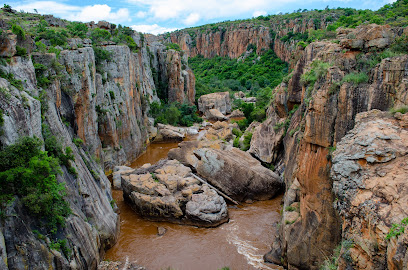
Three Rondavels View Point
Experience breathtaking vistas at the Three Rondavels View Point, a stunning scenic spot in Blyde River Canyon, South Africa.
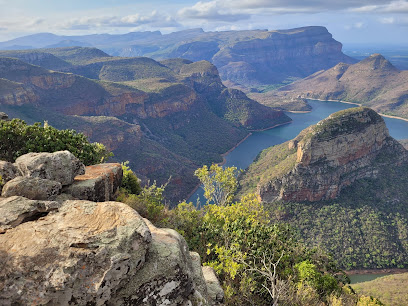
Blyde Lodge
Experience the beauty of South Africa at Blyde Lodge, your gateway to outdoor adventures and breathtaking landscapes in Graskop.
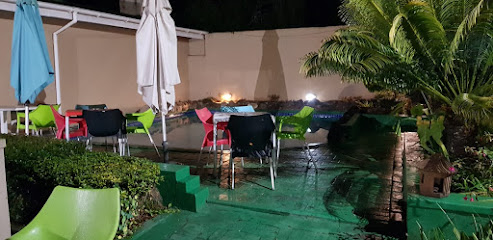
Lone Creek Falls
Explore the breathtaking Lone Creek Falls, a serene hiking paradise in South Africa, surrounded by lush nature and stunning landscapes.
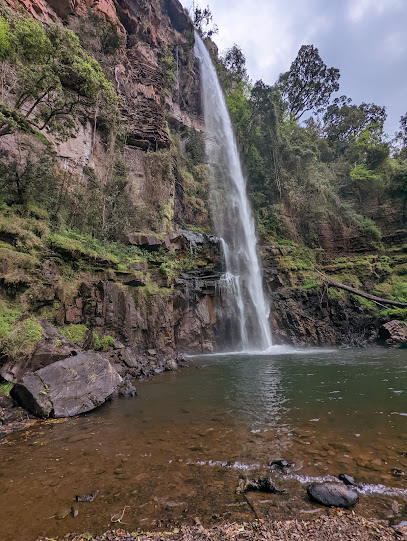
Blyde Canyon, A Forever Resort
Discover the breathtaking beauty of Blyde Canyon, A Forever Resort, where nature meets luxury in South Africa's most stunning landscapes.

The Pinnacle Rock
Explore The Pinnacle Rock: A breathtaking tourist attraction in South Africa, perfect for hiking enthusiasts and nature lovers seeking adventure and stunning views.
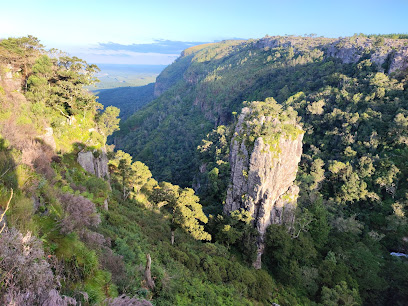
Mac Mac Pools
Experience the tranquil beauty of Mac Mac Pools, a must-visit natural attraction in South Africa with stunning pools and lush surroundings.
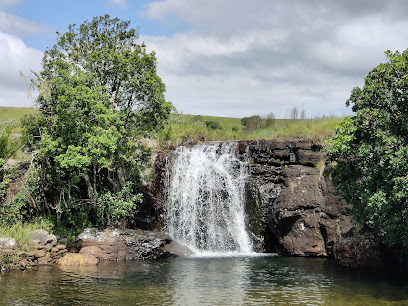
Blyde Dam Boat Trips
Experience the breathtaking beauty of Blyde River Canyon with unforgettable boat trips on Blyde Dam, a must-visit for nature lovers.
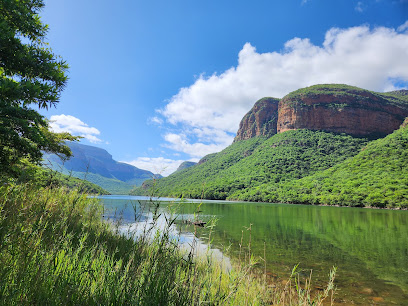
Blyde River Canyon
Explore the breathtaking Blyde River Canyon, a natural wonder brimming with stunning landscapes, diverse wildlife, and thrilling outdoor adventures.
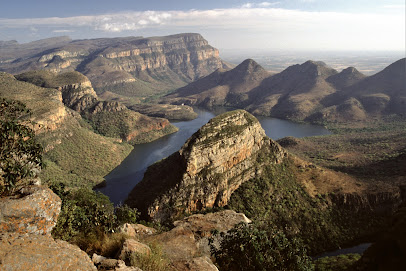
Lowveld View
Discover the panoramic beauty of Lowveld View, a must-visit tourist attraction in South Africa's stunning Lowveld region, perfect for nature lovers and adventurers.
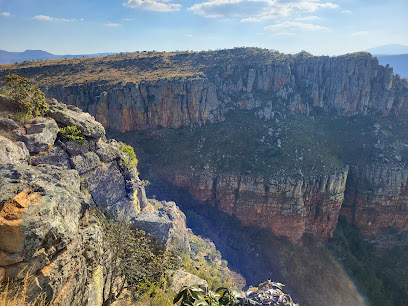
Forest Falls
Experience the breathtaking beauty of Forest Falls in Sabie, a must-visit destination for nature lovers and adventure seekers in South Africa.
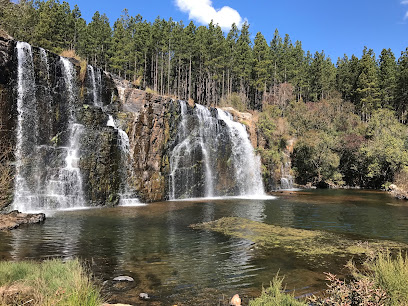
Mariepskop
Explore Mariepskop: A breathtaking nature preserve in Hoedspruit, South Africa, where stunning landscapes meet rich biodiversity.
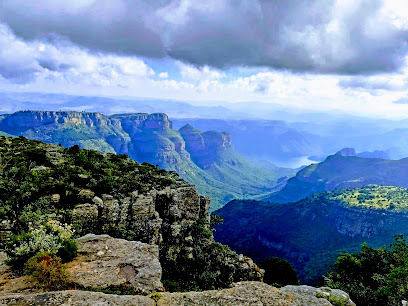
Three Rondawels, Blyde River Canyon
Explore the breathtaking beauty of the Three Rondawels in Blyde River Canyon, where nature’s artistry creates stunning rock formations and spectacular vistas.
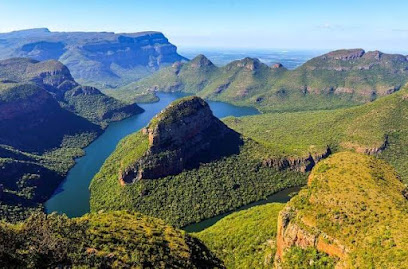
Old Diggings
Explore the heritage of Pilgrim's Rest at Old Diggings, a museum celebrating the gold rush era with engaging exhibits and gold panning experiences.
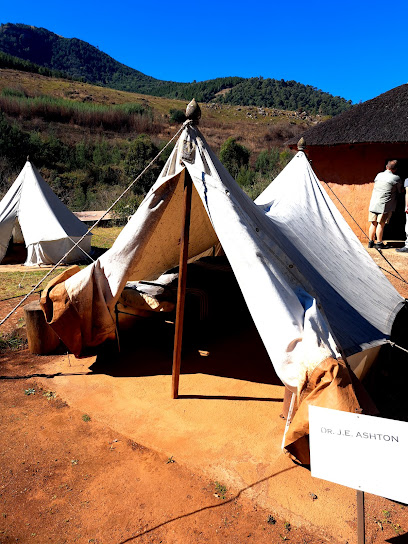
Unmissable attractions to see
Moditlo Game Reserve
Experience the untamed beauty of Moditlo Game Reserve, where adventure and nature collide in the heart of South Africa's wilderness.
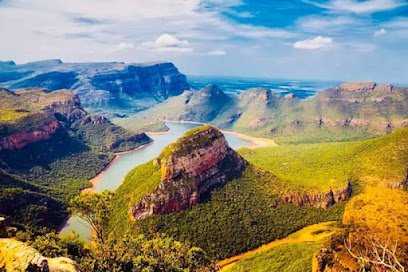
Lowveld View
Explore the stunning natural beauty of Lowveld View, a serene tourist attraction in South Africa, perfect for nature lovers and photography enthusiasts.
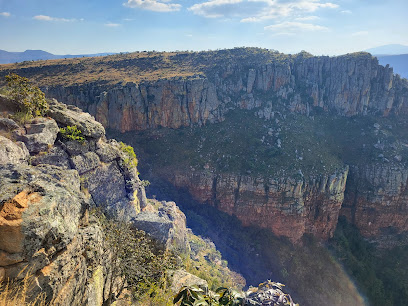
Belvedere Day Walk Starting Point
Discover the breathtaking beauty of nature at Belvedere Day Walk Starting Point, the gateway to unforgettable hiking adventures in Sabie, South Africa.
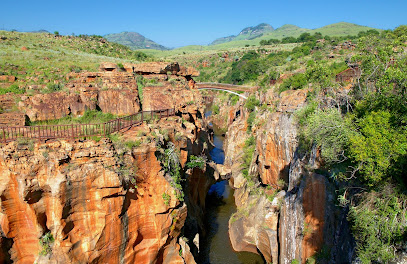
Upper Lookout (Blyde Canyon A Forever Resort)
Discover the breathtaking views of Blyde Canyon from the Upper Lookout, an unforgettable observation deck experience for nature lovers and adventurers.
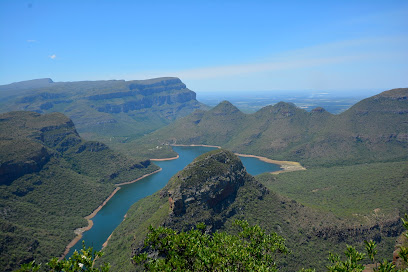
Mariepskop
Experience the breathtaking beauty and rich biodiversity of Mariepskop, a nature preserve near Hoedspruit, South Africa, perfect for adventure seekers and nature lovers.
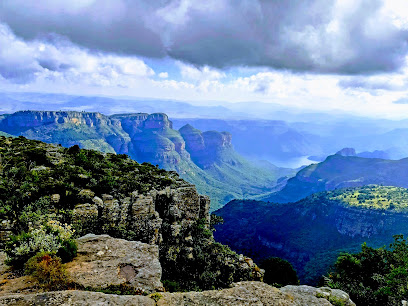
Lower Viewpoint (Blyde Canyon A Forever Resort)
Experience the breathtaking views from Lower Viewpoint at Blyde Canyon, South Africa's stunning natural wonder and a paradise for nature lovers.
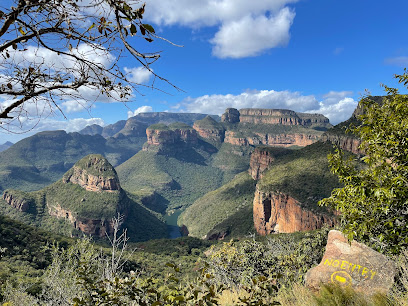
Hippo Trail Starting Point
Explore the stunning landscapes and diverse wildlife at the Hippo Trail Starting Point in Blyde Canyon Nature Reserve, a hiker's paradise in South Africa.
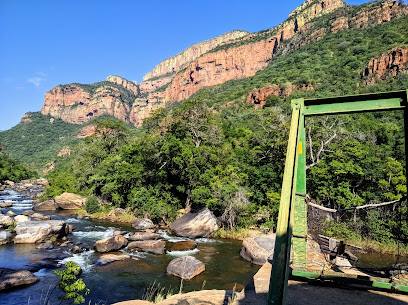
Old Diggings
Explore Old Diggings in Pilgrim's Rest, a captivating museum showcasing the gold rush history of South Africa amidst stunning natural beauty.
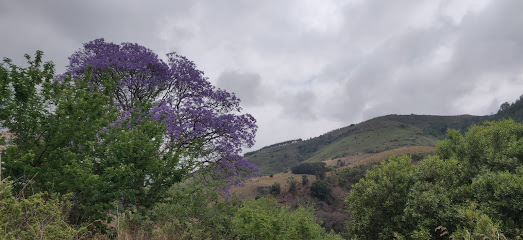
Tufa Waterfall
Tufa Waterfall in Sabie offers stunning hiking trails and breathtaking views, perfect for nature lovers and outdoor adventurers seeking a tranquil escape.
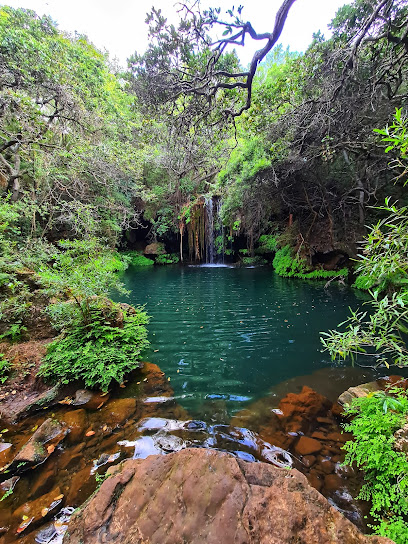
Blyderivierpoort Dam
Experience the breathtaking beauty and recreational activities at Blyderivierpoort Dam in Mpumalanga, South Africa.
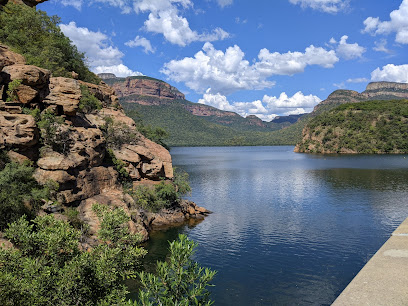
Matlatse Canyon Provincial Nature Reserve
Explore the unparalleled beauty of Matlatse Canyon Provincial Nature Reserve, a haven for nature lovers and adventure seekers in Mpumalanga, South Africa.
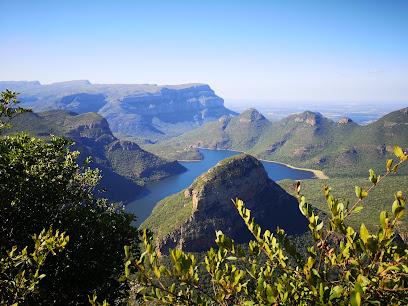
Treur Falls
Experience the breathtaking beauty of Treur Falls, a serene waterfall along the Panorama Route in South Africa, perfect for nature lovers and adventurers alike.
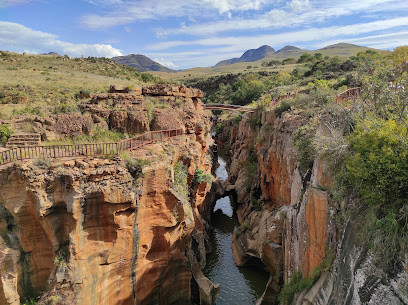
Amber 'Treur' Falls
Immerse yourself in the breathtaking beauty of Amber 'Treur' Falls, a natural wonder showcasing cascading waters and lush scenery in South Africa.
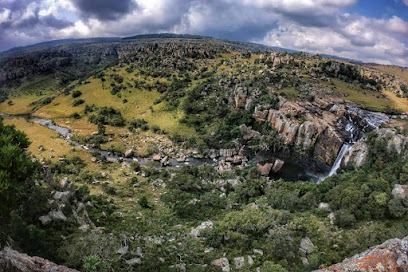
Skull Mountain - Blyde River Canyon
Experience the breathtaking beauty of Skull Mountain in Blyde River Canyon, a natural wonder that captivates with stunning landscapes and thrilling adventures.
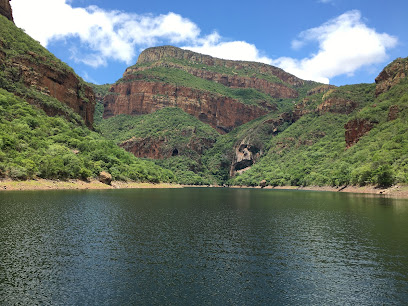
LEBOKISI CURVE
Discover the natural beauty of Lebokisi Curve, a stunning scenic attraction in South Africa perfect for photography and peaceful retreats.
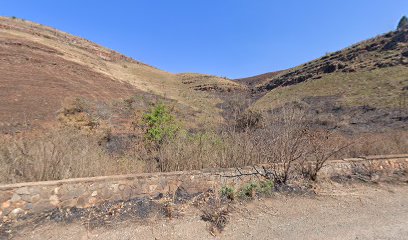
Essential places to dine
God’s Window
Discover God's Window: A breathtaking viewpoint offering panoramic vistas of lush valleys and dramatic cliffs in South Africa's stunning Ehlanzeni region.
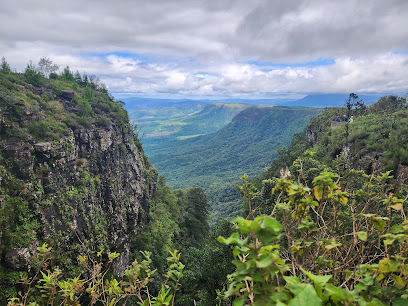
Harrie's Pancakes
Experience the best pancakes in Graskop at Harrie's Pancakes - where every bite is a taste of South African tradition.
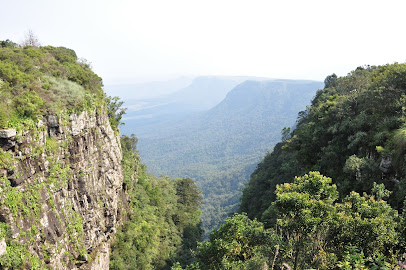
Blyde Lodge
Discover comfort and adventure at Blyde Lodge in Graskop – your gateway to the stunning Blyde River Canyon.
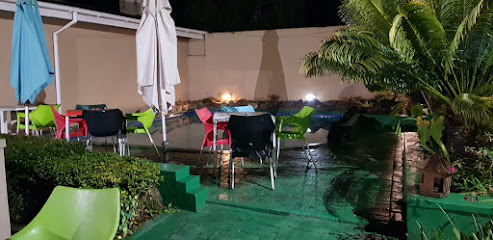
Swadini, A Forever Resort
Experience serenity and adventure at Swadini Resort nestled in Blyde River Canyon's breathtaking beauty.

Blyde Canyon, A Forever Resort
Experience unparalleled beauty at Blyde Canyon Resort - a serene getaway filled with adventure amidst nature's wonders.

The Hat & Creek
Experience exquisite dining at The Hat & Creek in Hoedspruit; savor local flavors amidst stunning natural beauty.
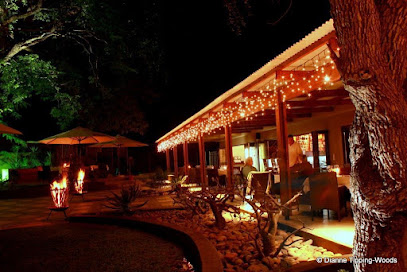
Kadisi Restaurant at Blyde Canyon, A Forever Resort
Experience exquisite dining at Kadisi Restaurant in Blyde Canyon, where stunning views meet delectable South African cuisine.
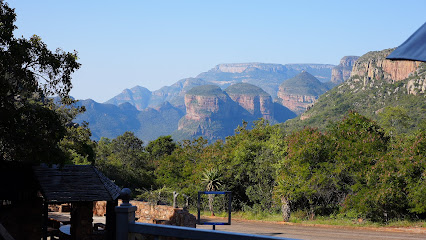
Blyde River Canyon
Discover breathtaking views and rich biodiversity at South Africa's iconic Blyde River Canyon – an unforgettable natural wonder.
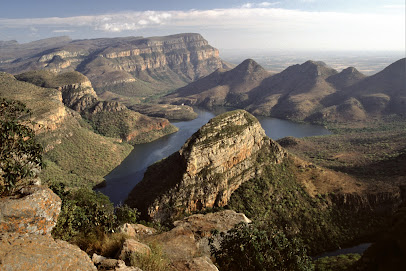
Divine Foods At The View
Experience exquisite dining amidst stunning views at Divine Foods At The View in Graskop - where nature meets culinary excellence.
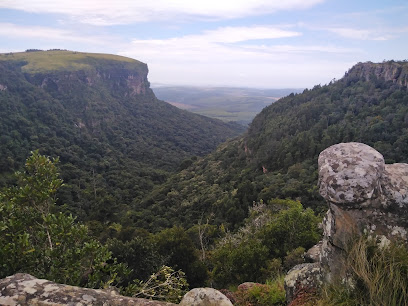
The Wild Fig Tree Restaurant
Experience authentic South African cuisine at The Wild Fig Tree Restaurant in Sabie – where every meal is a celebration of local flavors.
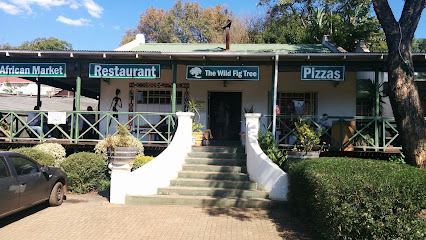
The Chubby Pig (Eatery, Gift Shop & Accommodation)
Discover culinary delights and outdoor adventures at The Chubby Pig in Moramelo - your gateway to unforgettable experiences.
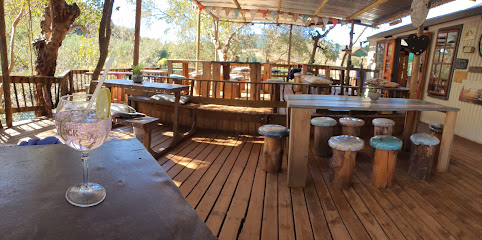
Blue Mountain Restaurant
Discover exquisite cuisine amidst breathtaking views at Blue Mountain Restaurant in Blyde Wildlife Estate.
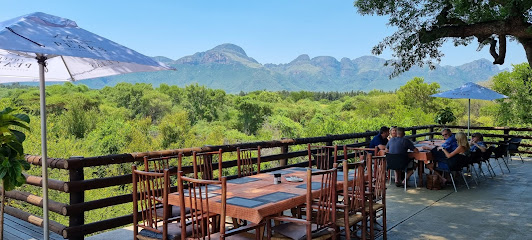
Blyde River Canyon Lodge
Experience luxury accommodation amidst breathtaking landscapes at Blyde River Canyon Lodge in South Africa's stunning natural reserve.

The Baobab Restaurant
Experience authentic South African cuisine with stunning views at The Baobab Restaurant in Hoedspruit.
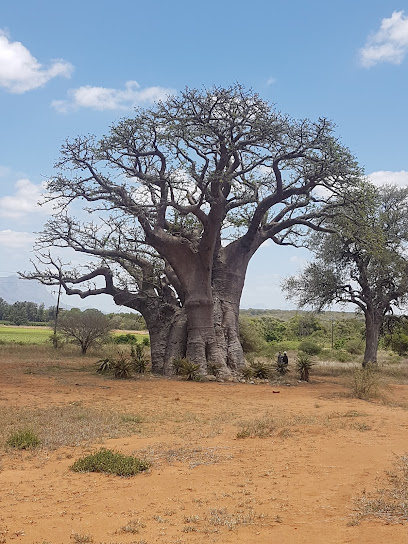
Blyde River Canyon Wilderness Lodge
Experience the tranquility of Blyde River Canyon Wilderness Lodge amidst stunning landscapes and rich biodiversity.
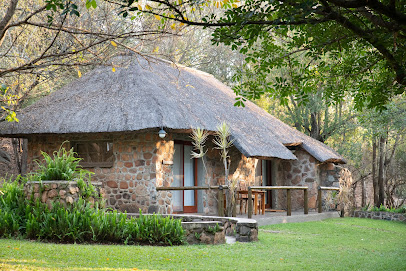
Markets, malls and hidden boutiques
Graskop Gorge Lift Co.
Experience breathtaking views and nature's beauty at Graskop Gorge Lift Co. in South Africa's Mpumalanga region.
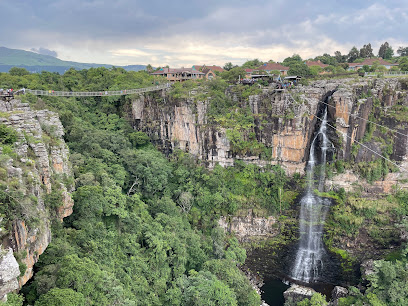
God’s Window
Discover the breathtaking views at God’s Window, a stunning viewpoint in Mpumalanga, South Africa, that showcases nature's unparalleled beauty.
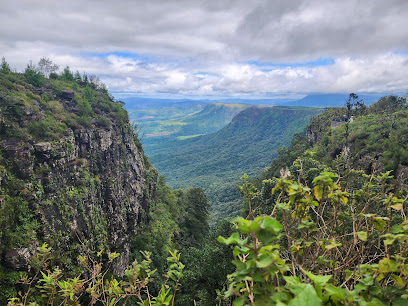
Bourke's Luck Potholes
Explore the stunning Bourke's Luck Potholes, a natural wonder in the Blyde River Canyon Nature Reserve, offering breathtaking views and unique geological formations.
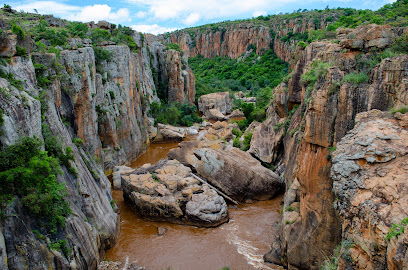
Sudwala Caves
Explore the ancient Sudwala Caves, a breathtaking natural wonder and historical gem in the heart of South Africa's Mpumalanga region.
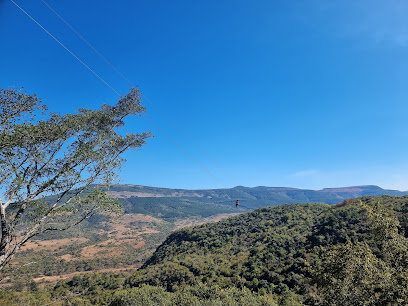
Three Rondavels View Point
Experience the stunning vistas and majestic beauty of the Three Rondavels View Point in South Africa's Blyde River Canyon, a must-see for every traveler.
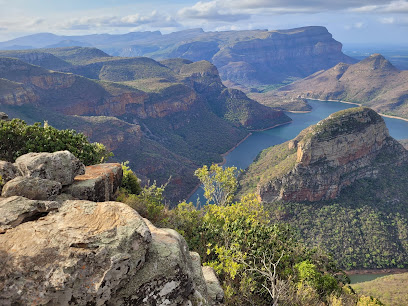
Blyde Lodge
Experience the beauty and adventure of Graskop at Blyde Lodge, your perfect nature retreat with access to breathtaking hiking trails.
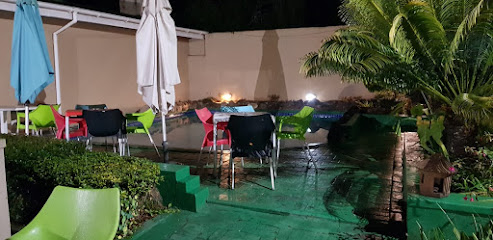
Swadini, A Forever Resort
Experience the natural beauty and adventure at Swadini, A Forever Resort, your perfect retreat in Blyderivierspoort Nature Reserve.

Blyde Canyon, A Forever Resort
Experience the breathtaking beauty of Blyde Canyon at Forever Resort, where adventure meets relaxation in South Africa's stunning natural landscape.

Casterbridge Lifestyle Centre
Discover unique shopping, delightful dining, and a vibrant atmosphere at Casterbridge Lifestyle Centre in White River, South Africa.
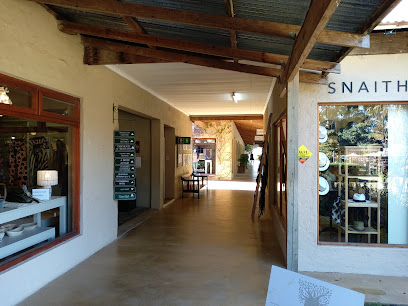
The Pinnacle Rock
Explore The Pinnacle Rock, a stunning natural attraction in South Africa, perfect for hiking and experiencing breathtaking views.
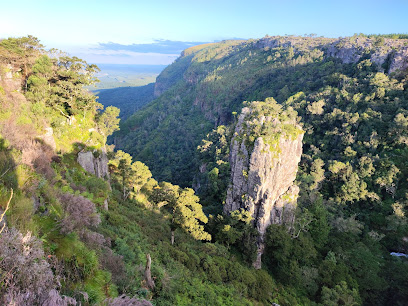
Blyde Canyon Boat cruise & Trips
Experience the breathtaking beauty of Blyde Canyon with unforgettable boat cruises through its stunning landscapes and rich wildlife.
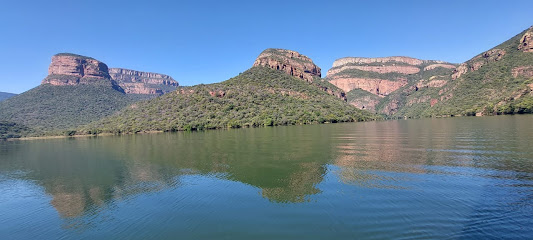
Blyde River Canyon
Experience the breathtaking beauty of Blyde River Canyon, a stunning natural wonder in South Africa with rich wildlife and adventure activities.
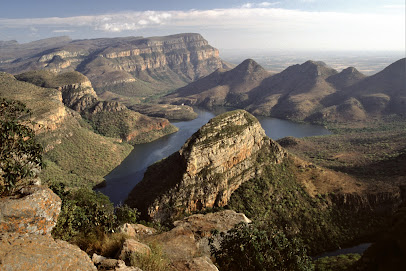
Blyderivier
Explore the enchanting Blyde River, a captivating natural wonder in South Africa's stunning Blyde River Canyon Nature Reserve.
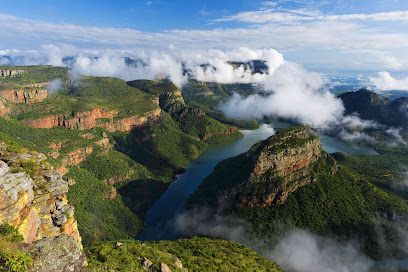
Lowveld View
Experience the stunning landscapes of Lowveld View, a breathtaking tourist attraction in South Africa perfect for nature lovers and families.
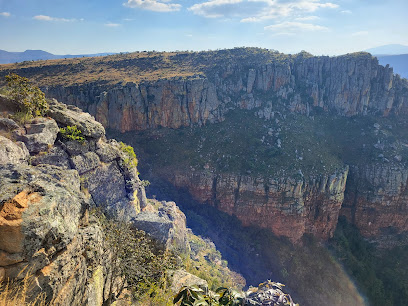
The Chubby Pig (Eatery, Gift Shop & Accommodation)
Experience the best of South African cuisine and culture at The Chubby Pig, your gateway to adventure in Moramelo.
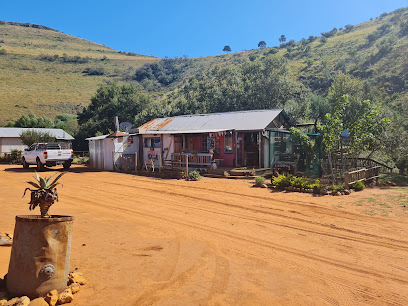
Essential bars & hidden hideouts
God’s Window
Discover the stunning vistas and natural beauty of God's Window, a breathtaking viewpoint in Mpumalanga, South Africa.
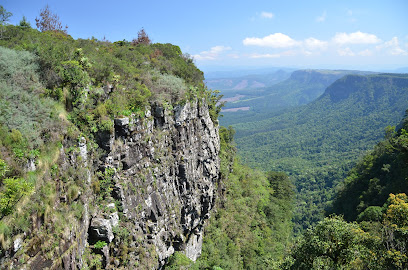
Bourke's Luck Potholes
Explore the natural wonder of Bourke's Luck Potholes, where stunning geological formations meet the beauty of Blyde River Canyon.
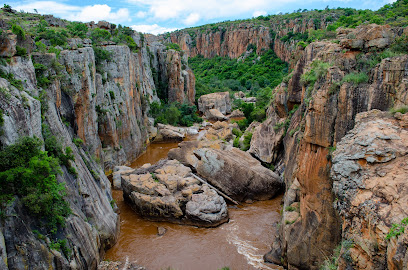
Blyde Lodge
Experience the charm of Blyde Lodge, where comfort meets adventure in the heart of Graskop, South Africa's breathtaking nature.
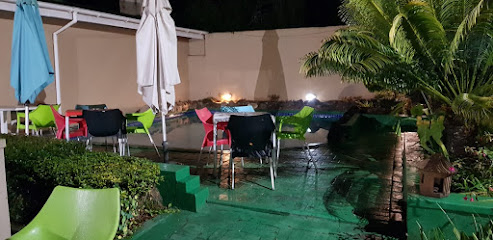
Swadini, A Forever Resort
Experience an unforgettable stay at Swadini, A Forever Resort, where nature meets luxury in the heart of Blyderivierspoort Nature Reserve.

Blyde Canyon, A Forever Resort
Experience the breathtaking beauty of Blyde Canyon at A Forever Resort, a perfect blend of adventure, relaxation, and nature's wonders.

Bush Pub & Inn.
Discover comfort and adventure at Bush Pub & Inn, your gateway to the stunning Thornybush Game Reserve in South Africa.

The Thirsty Giraffe Grillhouse and Winebar
Experience the best of South African cuisine at The Thirsty Giraffe Grillhouse and Winebar, where succulent steaks and fine wines await.
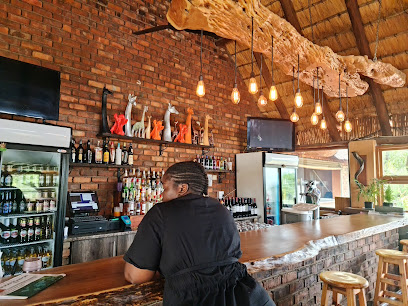
Magnolia Restaurant & Cocktail Lounge
Experience fine dining at Magnolia Restaurant & Cocktail Lounge, where exceptional cuisine meets stunning views in White River, South Africa.
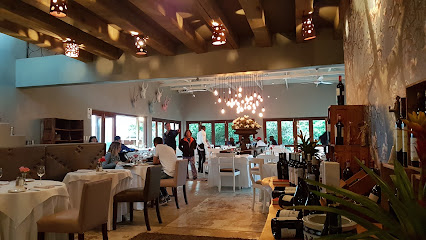
The Chubby Pig (Eatery, Gift Shop & Accommodation)
Discover The Chubby Pig: A charming eatery and gift shop in Moramelo, perfect for hiking, relaxation, and savoring local flavors.
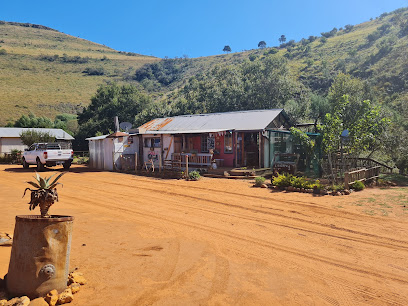
Tanks Bush Pub
Discover the heart of Hazyview at Tanks Bush Pub, where delicious cuisine meets a vibrant atmosphere in a family-friendly setting.
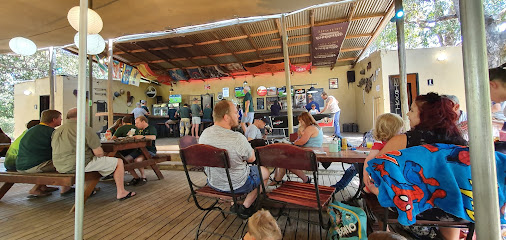
Blyde River Canyon Lodge
Experience the beauty of the Blyde River Canyon Lodge, where nature meets luxury in a breathtaking South African setting.

Karongwe River Lodge
Discover culinary excellence amidst the breathtaking landscapes of Karongwe River Lodge, where nature meets exquisite dining in South Africa.
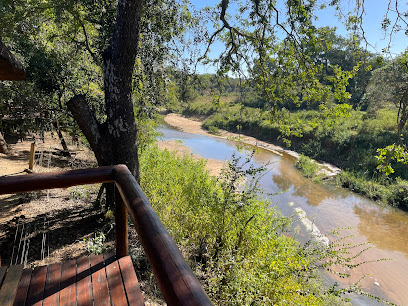
Three Rondawels, Blyde River Canyon
Discover the stunning Three Rondawels in Blyde River Canyon, a breathtaking natural wonder showcasing South Africa's unique landscapes and rich heritage.
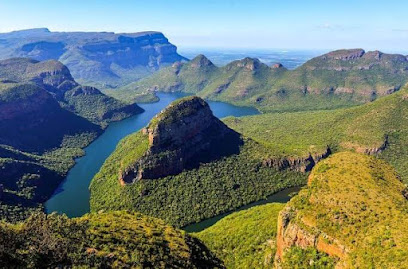
Rio Dos Elefantes River Camp
Discover the beauty of nature and experience authentic South African cuisine at Rio Dos Elefantes River Camp in Balule Nature Reserve.
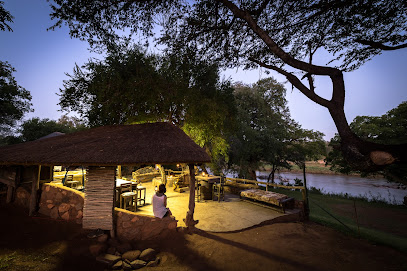
Local Phrases about Blyde River Canyon Nature Reserve
-
- HelloHallo
[ha-loh] - GoodbyeTotsiens
[tut-see-uhns] - YesJa
[yah] - NoNee
[nee] - Please/You're welcomeAsseblief
[uss-uh-bleef] - Thank youDankie
[dahn-kee] - Excuse me/SorryVerskoon my
[fuh-skoon may] - How are you?Hoe gaan dit met jou?
[who gahn dit met yoh] - Fine. And you?Goed. En jy?
[goot. en yey] - Do you speak English?Praat jy Engels?
[praht yey eng-uhls] - I don't understandEk verstaan nie
[ek verstahn nee]
- HelloHallo
-
- I'd like to see the menu, pleaseEk wil asseblief die spyskaart sien
[ek vil us-uh-bleef dee speys-kahrt seen] - I don't eat meatEk eet nie vleis nie
[ek ayt nee flays nee] - Cheers!Gesondheid!
[guh-sund-hate] - I would like to pay, pleaseEk wil asseblief betaal
[ek vil us-uh-bleef buh-tahl]
- I'd like to see the menu, pleaseEk wil asseblief die spyskaart sien
-
- Help!Hulp!
[hulp] - Go away!Gaan weg!
[gahn vekh] - Call the Police!Bel die Polisie!
[bel dee poh-luh-see] - Call a doctor!Bel 'n dokter!
[bel uhn dohk-tuh] - I'm lostEk is verlore
[ek is fuh-lor-uh] - I'm illEk is siek
[ek is seek]
- Help!Hulp!
-
- I'd like to buy...Ek wil graag koop...
[ek vil grah kohp] - I'm just lookingEk kyk net
[ek kike net] - How much is it?Hoeveel kos dit?
[ho-veel kohs dit] - That's too expensiveDit is te duur
[dit is tuh doo-er] - Can you lower the price?Kan jy die prys verlaag?
[kahn yey dee prace fur-lahg]
- I'd like to buy...Ek wil graag koop...
-
- What time is it?Hoe laat is dit?
[ho leyt is dit] - It's one o'clockDit is een uur
[dit is ayn uhr] - Half past (10)Half tien
[hahf teeyn] - MorningOggend
[oh-ghunt] - AfternoonMiddag
[mid-uhkh] - EveningAand
[ahnt] - YesterdayGister
[gih-stuhr] - TodayVandag
[fun-dahkh] - TomorrowMôre
[moh-ruh] - 1Een
[ayn] - 2Twee
[twee] - 3Drie
[tree] - 4Vier
[feer] - 5Vyf
[fayf] - 6Ses
[sehs] - 7Sewe
[seh-weh] - 8Agt
[ahgt] - 9Nege
[nee-ghuh] - 10Tien
[teeyn]
- What time is it?Hoe laat is dit?
-
- Where's a/the...?Waar is 'n/die...?
[vahr is uhn/dee] - What's the address?Wat is die adres?
[vaht is dee uh-drehs] - Can you show me (on the map)?Kan jy vir my wys (op die kaart)?
[kahn yey fur may vays (op dee kart)] - When's the next (bus)?Wanneer is die volgende (bus)?
[vuhn-uh is dee full-fend-uh bus] - A ticket (to ....)'n Kaartjie (na ....)
[uhn kahrt-yuh (nah)]
- Where's a/the...?Waar is 'n/die...?
History of Blyde River Canyon Nature Reserve
-
The Blyde River Canyon, one of the largest canyons on Earth, was formed around 200 million years ago during the break-up of the Gondwana supercontinent. The canyon is predominantly composed of red sandstone, and its formation was a result of tectonic activity and erosion by the Blyde River. Its dramatic cliffs and lush vegetation are a testament to the natural processes that have shaped the region over millennia.
-
The Blyde River Canyon area has been inhabited by humans for thousands of years. The San people, also known as the Bushmen, were among the earliest inhabitants. They left behind a rich legacy of rock art, depicting their daily lives, spiritual beliefs, and the animals they hunted. These ancient artworks provide a glimpse into the lives of the region's earliest inhabitants and their deep connection with the natural environment.
-
In the 19th century, the region around Blyde River Canyon became a significant route for Voortrekkers, Dutch-speaking settlers who moved inland from the Cape Colony. The canyon was named 'Blyde,' meaning 'joyful' in Dutch, to commemorate the relief felt by a group of Voortrekkers who were reunited with their companions after a perilous journey. The canyon's name reflects the optimism and adventurous spirit of these early pioneers.
-
The discovery of gold in the nearby Pilgrim's Rest in the late 1800s brought a wave of fortune seekers to the region. The gold rush era saw the establishment of mining towns and an influx of prospectors. Though the gold mines eventually dwindled, this period left a lasting impact on the area's development and cultural landscape. Pilgrim's Rest, now a museum town, offers insights into the hardships and triumphs of those gold rush days.
-
Blyde River Canyon was officially proclaimed a nature reserve in 1965 to protect its unique flora, fauna, and geological features. The reserve covers an area of approximately 29,000 hectares and is home to a diverse range of wildlife, including various species of primates, antelope, and birds. The proclamation of the nature reserve marked a significant step in the conservation of South Africa's natural heritage, ensuring that the canyon's stunning landscapes and ecosystems are preserved for future generations.
-
Today, Blyde River Canyon is not only a natural wonder but also a cultural treasure trove. The reserve is home to several communities, including the BaPedi and the Tsonga people, who have rich cultural traditions and histories. Tourists visiting the area can experience traditional dances, crafts, and local cuisine, offering a deeper understanding of the cultural fabric of the region. Modern tourism has brought economic benefits to these communities while promoting the conservation of their cultural and natural heritage.
Blyde River Canyon Nature Reserve Essentials
-
Blyde River Canyon Nature Reserve is located in the Mpumalanga Province of South Africa. The nearest international airport is Kruger Mpumalanga International Airport (KMIA) in Nelspruit, approximately 120 kilometers away. From the airport, you can rent a car or arrange for a shuttle service to the reserve. Alternatively, you can drive from Johannesburg, which is around 400 kilometers away and takes approximately 5 to 6 hours by car. There are also bus services that operate from major cities to towns near the reserve, such as Graskop and Hoedspruit.
-
Once you arrive at the Blyde River Canyon Nature Reserve, having your own vehicle is the most convenient way to explore the area. Car rentals are available at major airports and cities. There are also guided tours that provide transportation to various attractions within the reserve. Public transport is limited, so it is advisable to plan your transportation in advance. Some lodges and hotels offer shuttle services to popular spots within the reserve.
-
The official currency of South Africa is the South African Rand (ZAR). Credit cards are widely accepted in most hotels, restaurants, and shops within and around the reserve. However, it is advisable to carry some cash for smaller establishments and for activities like local markets or tips. ATMs are available in nearby towns such as Graskop and Hoedspruit, but it is a good idea to withdraw sufficient cash before heading into the more remote areas of the reserve.
-
Blyde River Canyon Nature Reserve is generally a safe destination for tourists. However, standard travel precautions should be taken. Avoid walking alone at night and keep your belongings secure, especially in crowded areas. While the reserve itself is safe, be cautious in surrounding towns and avoid areas that are not well-lit or frequented by tourists. Always stay on marked trails and follow the reserve's guidelines to ensure your safety.
-
In case of an emergency, dial 10111 for police assistance or 10177 for medical emergencies. It is highly recommended to have travel insurance that covers medical emergencies and evacuation. The nearest hospitals are located in Nelspruit and Hoedspruit. For minor health issues, there are pharmacies in nearby towns. Always keep a list of emergency contacts and inform someone of your travel plans when venturing into remote areas of the reserve.
-
Fashion: Do wear comfortable, weather-appropriate clothing and sturdy footwear for hiking. Avoid flashy jewelry and expensive accessories. Religion: Do respect local customs and traditions, though the reserve itself is not a religious site. Public Transport: Do plan your trips in advance as public transport options are limited. Greetings: Do greet people with a friendly 'hello' or 'howzit' (a common South African greeting). Eating & Drinking: Do try local foods and specialties; South African cuisine is diverse and flavorful. Don't litter in the reserve; always use designated trash bins.
-
To experience Blyde River Canyon like a local, start your day early to catch the sunrise at God's Window. Visit the local markets in nearby towns for handmade crafts and fresh produce. Engage with local guides to learn about the history and geology of the canyon. Don't miss out on activities like boat tours on the Blyde Dam, hiking trails, and exploring the viewpoints such as Bourke's Luck Potholes and the Three Rondavels. For a unique experience, consider staying in one of the local lodges that offer immersive nature experiences.
Trending Landmarks in Blyde River Canyon Nature Reserve
Nearby Cities to Blyde River Canyon Nature Reserve
-
Things To Do in Mhlume
-
Things To Do in Mbabane
-
Things To Do in Polokwane
-
Things To Do in Malkerns
-
Things To Do in Manzini
-
Things To Do in Matola
-
Things To Do in Maputo
-
Things To Do in Big Bend
-
Things To Do in Pretoria
-
Things To Do in Johannesburg
-
Things To Do in Selebi-Phikwe
-
Things To Do in Mahalapye
-
Things To Do in Palapye
-
Things To Do in Maxixe
-
Things To Do in Inhambane













